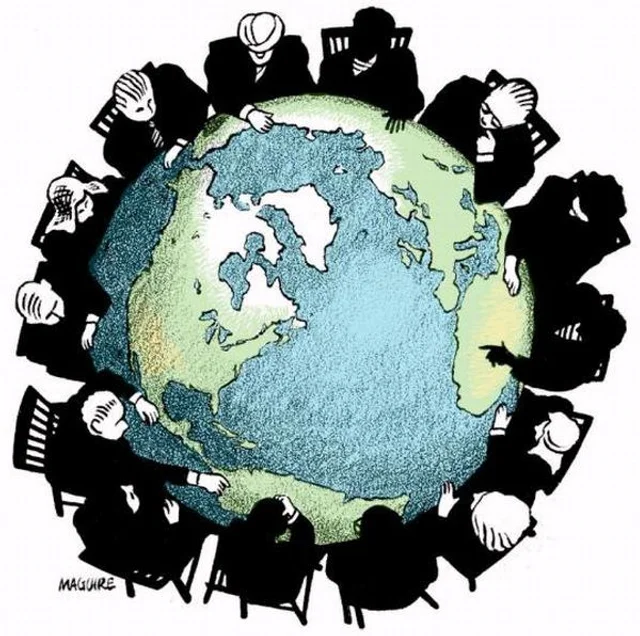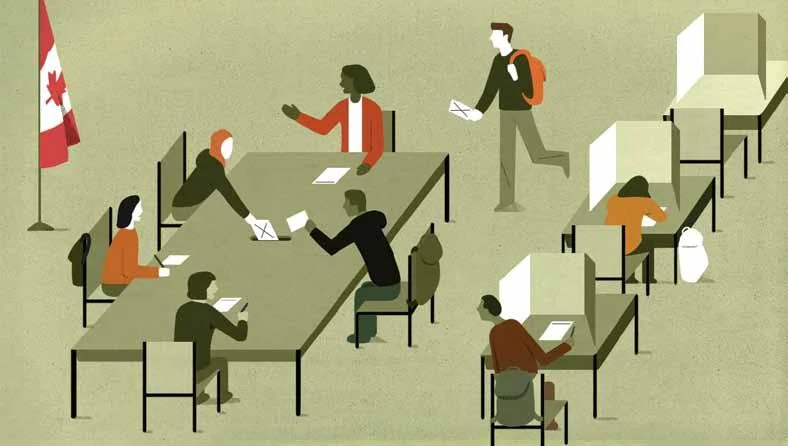Unpacking the Impact of Globalization in Politics and Governance

Globalization's Transformative Impact on Politics and Governance
Globalization, a multifaceted and complex phenomenon, has transcended borders and reshaped the world in myriad ways over the past few decades. Beyond its economic dimensions, globalization has exerted a profound influence on politics and governance, altering the dynamics of power, the role of states, and the nature of decision-making. This blog post delves into the far-reaching effects of globalization on politics and governance, exploring both its positive and negative ramifications.
Globalization Defined
At its core, globalization refers to the increasing interconnectedness of the world, facilitated by the flow of goods, services, information, capital, and people across borders. This process has been accelerated by advances in technology, particularly in communication and transportation, and by the liberalization of markets and trade. While economic globalization is often the focus, it is essential to recognize that globalization encompasses various dimensions, including cultural, environmental, and political.
Positive Impacts on Politics and Governance
Increased Interdependence: Globalization has made nations more interdependent, recognizing that their prosperity and security are closely linked to global events. This has encouraged cooperation and diplomacy, leading to the creation of international institutions like the United Nations, the World Trade Organization, and the Paris Agreement on climate change.
Enhanced Access to Information: The digital age has provided citizens with unprecedented access to information, fostering transparency and accountability. Governments are under greater scrutiny, which can lead to improved governance practices, reduced corruption, and more responsive policymaking.
Technological Advancements: Globalization has driven technological advancements, which can empower governments to better serve their citizens. E-government initiatives, for example, have improved the efficiency and accessibility of public services.
Economic Growth: While primarily an economic benefit, globalization's positive economic impacts can indirectly bolster political stability and governance. Increased trade and investment can lead to higher GDP and improved living standards, reducing social unrest.
Negative Impacts on Politics and Governance
Economic Inequality: While globalization can contribute to overall economic growth, it often exacerbates income inequality within and between countries. This inequality can lead to political instability and undermine governance by favoring the interests of the wealthy.
Loss of National Sovereignty: Globalization challenges the traditional notion of national sovereignty, as international institutions and agreements can restrict a nation's ability to make autonomous decisions. Critics argue that this can erode democratic governance.
Political Backlash: Some segments of society perceive globalization as a threat to their cultural identity and economic well-being. This has fueled populist movements and anti-globalization sentiments, which can disrupt political stability.
Environmental Challenges: Globalization has led to increased environmental concerns, including climate change and resource depletion. Addressing these challenges requires international cooperation and governance mechanisms that are often slow to respond.
Geopolitical Tensions: Competition for resources and influence in a globalized world can lead to geopolitical tensions, potentially resulting in conflicts and challenges to global governance.
Challenges and Responses: Navigating Globalization's Impact on Politics and Governance
Navigating the complex landscape of globalization's impact on politics and governance requires a multifaceted approach. Governments, international organizations, civil society, and individuals all play a role in shaping how globalization influences governance structures and political dynamics. Here are some key challenges and potential responses:
Addressing Economic Inequality: To mitigate the negative consequences of economic inequality exacerbated by globalization, governments can implement progressive tax policies, social safety nets, and equitable access to education and healthcare. International organizations can promote fair trade practices and financial regulations to curb excessive wealth accumulation.
Safeguarding National Sovereignty: While recognizing the importance of international cooperation, nations must protect their sovereignty by actively participating in global governance structures. They can negotiate favorable trade agreements, participate in international diplomacy, and ensure that international organizations respect national interests.
Managing Political Backlash: Governments should engage in open and honest dialogues with citizens to address their concerns about globalization. Education and media literacy can help dispel myths and misinformation, fostering a more informed public discourse. Political leaders must also be responsive to the needs of marginalized communities.
Environmental Sustainability: International collaboration is essential to tackle global environmental challenges. Governments should honor and strengthen international agreements related to environmental protection and climate change, while also investing in renewable energy and sustainable practices at the national level.
Promoting Global Cooperation: Geopolitical tensions can be mitigated through diplomatic efforts and conflict resolution mechanisms. International organizations like the United Nations should play a central role in facilitating dialogue and cooperation among nations.
Strengthening Digital Governance: The digital age presents unique challenges for governance. Nations need to develop regulations and safeguards for data privacy, cybersecurity, and digital rights. International norms and agreements can provide a framework for responsible digital governance.
Enhancing Global Health Governance: The COVID-19 pandemic highlighted the need for improved global health governance. Nations should work together to bolster the World Health Organization (WHO) and establish better mechanisms for pandemic preparedness and response.
Promoting Inclusivity: Governance structures at both the national and international levels should be inclusive and representative of diverse populations. Empowering marginalized groups, including women and minorities, can lead to more equitable and effective governance.
Building Resilience: Governments should develop resilience strategies to cope with economic and environmental shocks caused by globalization. This includes diversifying economies, investing in research and development, and creating contingency plans.
Fostering Global Citizenship: At the individual level, promoting global citizenship and cross-cultural understanding can contribute to more responsible and engaged global governance. Education and civil society organizations can play a role in raising awareness and advocating for positive change.
Globalization has fundamentally altered the landscape of politics and governance, presenting both opportunities and challenges. While it has facilitated cooperation and economic growth, it has also given rise to inequality, political discontent, and environmental threats. Effective responses to globalization's impact on governance require collaboration at multiple levels, from local to international. Governments, international organizations, civil society, and individuals must work together to harness the positive aspects of globalization while addressing its negative consequences. By doing so, we can create a more just, equitable, and sustainable global governance system that benefits all of humanity in this interconnected world.
What's Your Reaction?





















